Taylor Thomas Showcases Creativity through ABA Therapy and Art
March 19, 2020
March 19, 2020
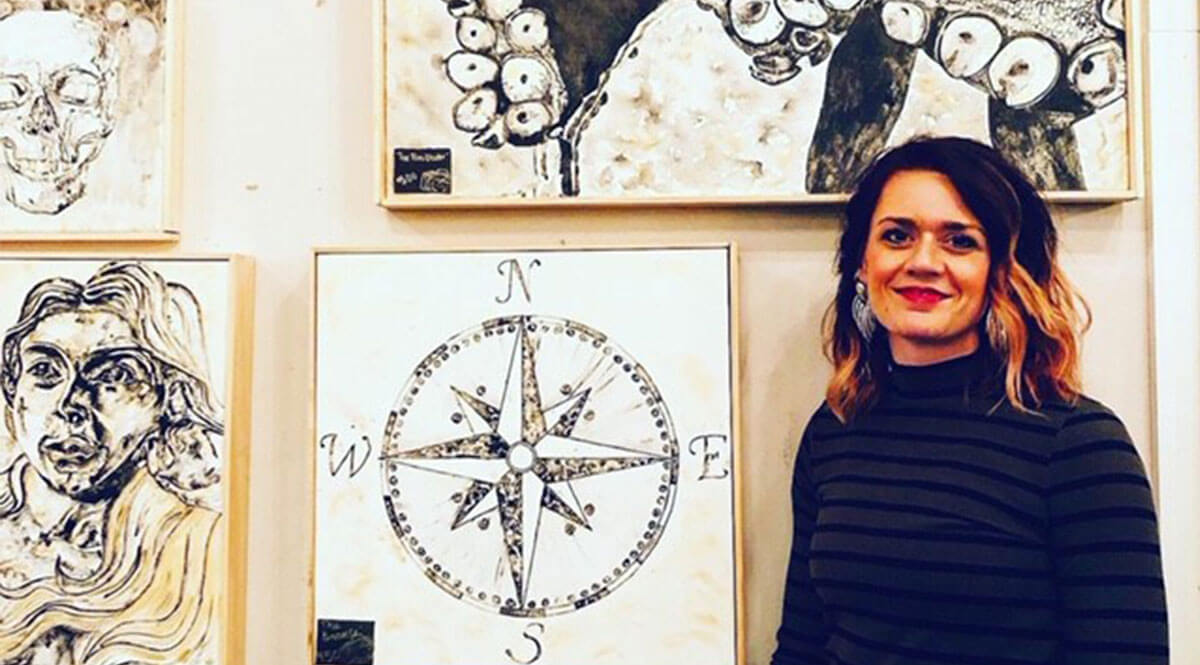
It’s no shock to us that our Hopebridge team is full of creative minds. From designing personalized autism therapy programs for each individual, to offering fun and easier ways for parents to get a haircut for their kids with autism, to transforming our centers into “restaurants” to teach new life skills, their artistry can be viewed in all aspects of their work.
Often times, the creativity of our team extends beyond the centers, like that of Hopebridge Board Certified Behavior Analyst (BCBA) Taylor Thomas. Her craft spans multiple mediums, with skills in watercolors, charcoal, pastels, photography and of course, applied behavior analysis (ABA therapy).
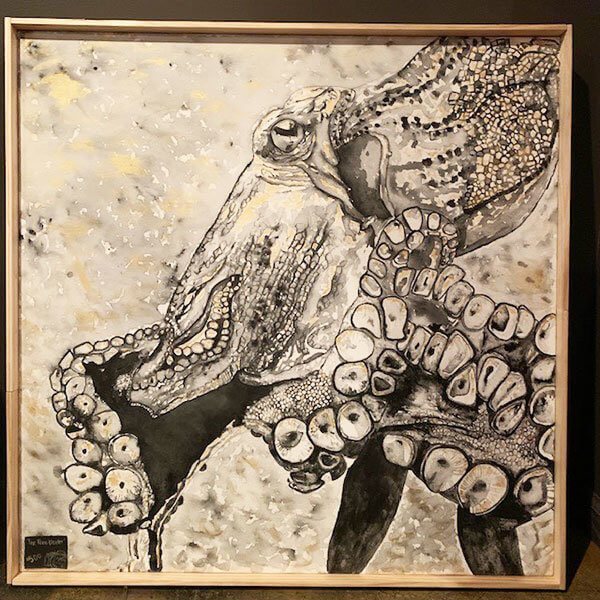
“It stems from my dad, who primarily draws and is really talented. When I was a kid, I would cut out portions of pictures from magazines and draw the rest,” said Taylor.
Taylor took a number of drawing and photography classes in college but did not begin painting until a few years ago, when she saw a painting she liked and tried to replicate it. She bought a watercolor set and has been hooked ever since.
She has created a number of commissioned pieces and had her work on display during art school, but is most proud of her first-ever collection up for public viewing at a local coffee shop. Her favorite piece from the “Scallywag” collection is a pirate, “Old Salt,” painted with black watercolor and embellished with gold acrylic. Her work can still be seen around town, though the collection has been broken up a bit as the pieces sell. Her Hopebridge community can also get a peek at some of her other work above her desk at the Marion center.
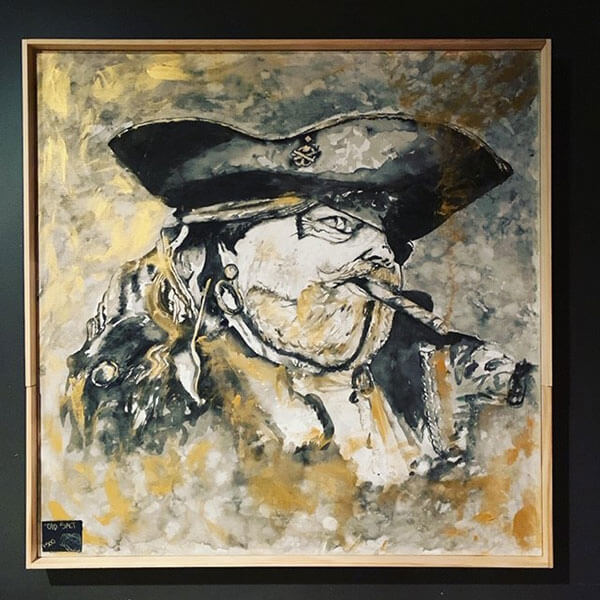
Art comes in many forms, and Taylor enjoys helping children express themselves in ways that suit their own specific skillsets.
“Fine motor activities can be tough, but our kids can be visually stimulated by a lot of things, so we often use it as a reinforcer,” said Taylor.
“Rather than visual art, I like to use music in different ways during ABA therapy. I worked with one little girl whose stereotypy is quite strong and can be difficult for her. We taught her how to play ‘Twinkle, Twinkle’ on the xylophone by imitation until she had the entire song memorized. She seems to respond to imitation skills better through sound than motion, so we used music to harness them,” said Taylor.
Taylor loves being able to follow the potential of a kid who comes into the center, as well as the family’s potential. She knows it can be difficult to hear from doctors that their child is non-verbal, but often times they are capable and just need the right methods to get there.
“Being able to make these moments happen is my favorite part of the job. Watching these kids make eye contact, figuring out what they want, and then being able to give them the words to express it…I love seeing it all come together,” said Taylor. “I know what it’s like. It doesn’t just make a difference in the child’s life, but rather the entire family dynamic. It changes everything, even if you don’t realize it.”
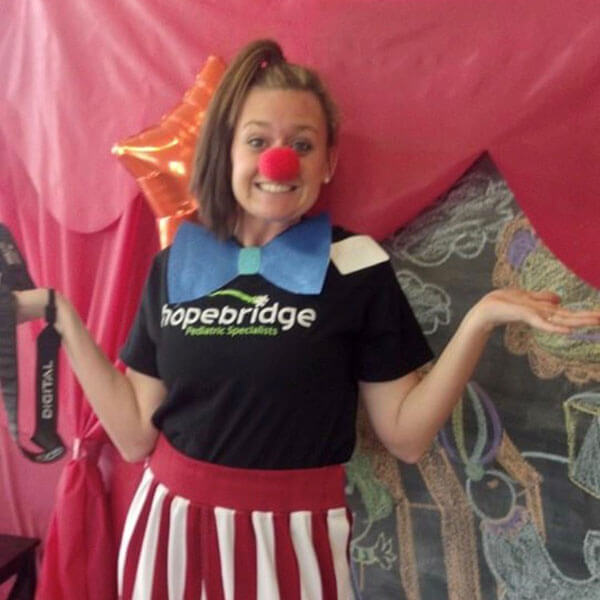
One moment in particular comes to mind for Taylor. She worked with a boy who came to the United States from another country to receive ABA therapy. At 6 years old, he had never spoken before. Instead, she worked with him on using a device to communicate, running thousands of trials.
“One day, he looked at me and said, ‘ball.’ His voice was so deep it sounded like that of a man’s! He had never spoken a word before, so it took me a few seconds to realize it came from him. I was so excited that I think I scared him,” said Taylor. “It was amazing to hear this from a kid who typically squealed and made non-communicative voices. It shows that using one of these devices doesn’t hinder communication; it creates a path for it.”
While she always made time for her art, Taylor started her college education in criminal justice before making the leap to behavior analysis. She was initially drawn to ABA after stumbling upon it during her psychology coursework as part of her minor.
She had worked in a juvenile rehab facility for one day before determining it was not the right fit for her. After learning a bit about ABA therapy, she knew she wanted to incorporate it into her work, originally anticipating she could use it in the criminal justice field. Once Taylor discovered it was mostly used within the autism community, it piqued her interest even more, since she grew up with an older brother who has autism.
Taylor began her master’s program in behavior analysis, admitting she is not sure she fully understood a BCBA’s role at that point. Then, after learning about Hopebridge from another BCBA, Shannon White, she joined the Marion center in May 2013 and has been with us ever since!
“To me, autism is a set of differences that can make certain aspects of an individual’s life easier or harder, both for themselves and those around them,” said Taylor. “As a BCBA, it comes down to this: we just have to figure out what each child’s strengths and weaknesses are, then build upon them.”
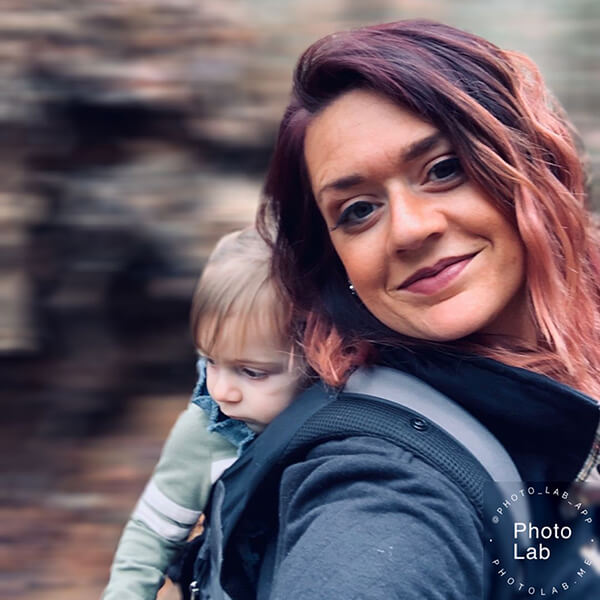
Now is your time to put your creativity to work for others. If you are inspired by Taylor’s story as we are, check out our Hopebridge job board to review open positions in ABA and other areas suited to you around the country.
Fun Fact: “I had three kids in two and a half years and none were multiple pregnancies! My kids are ages 2, 3 and 4.”
Favorite Superhero: “Wonder Woman is pretty awesome. She is timeless, a warrior and looks great in her costume! Considering what she stands for, who wouldn’t want to be her?”
Hobbies: “I am avid about working out daily and even host group workouts. A group of six of us from the center get together to run stairs, hills or circuits, and I also host a private Beach Body Facebook group for almost 100 women to lift each other up.”
*Informed consent was obtained from the participants in this article. This information should not be captured and reused without express permission from Hopebridge, LLC. Testimonials are solicited as part of an open casting call process for testimonials from former client caregivers. Hopebridge does not permit clinical employees to solicit or use testimonials about therapeutic services received from current clients (Ethics Code for Behavior Analysts 5.07-5.08; BACB, 2020). Hopebridge does not provide any incentives, compensation, or renumeration for testimonials provided by a former client or client caregiver.
Team Spotlight
December 30, 2019
How Center-Based Therapy Brings BCBA Jenn Abrom Closer to the Kiddos
Team Spotlight
October 10, 2022
How Hopebridge Finds the Best Clinicians for its Autism Therapy Team
Team Spotlight
July 25, 2022
Moving for the Cause: Hopebridge BCBA Answers the Call to Serve
Team Spotlight
January 22, 2021
How a ‘Gap Year’ Job in ABA Therapy Led to a Change in Career Path for Elise Discher